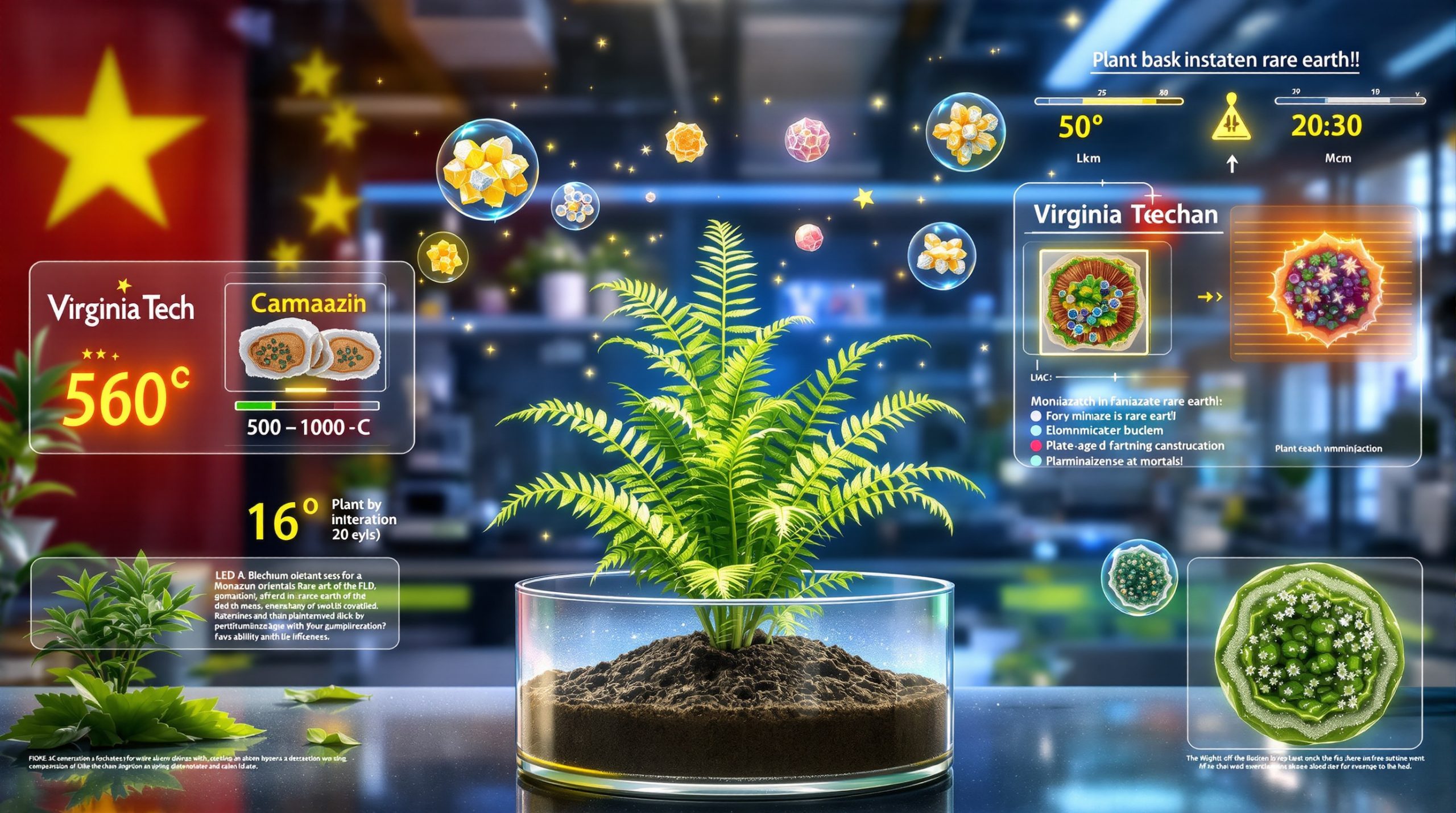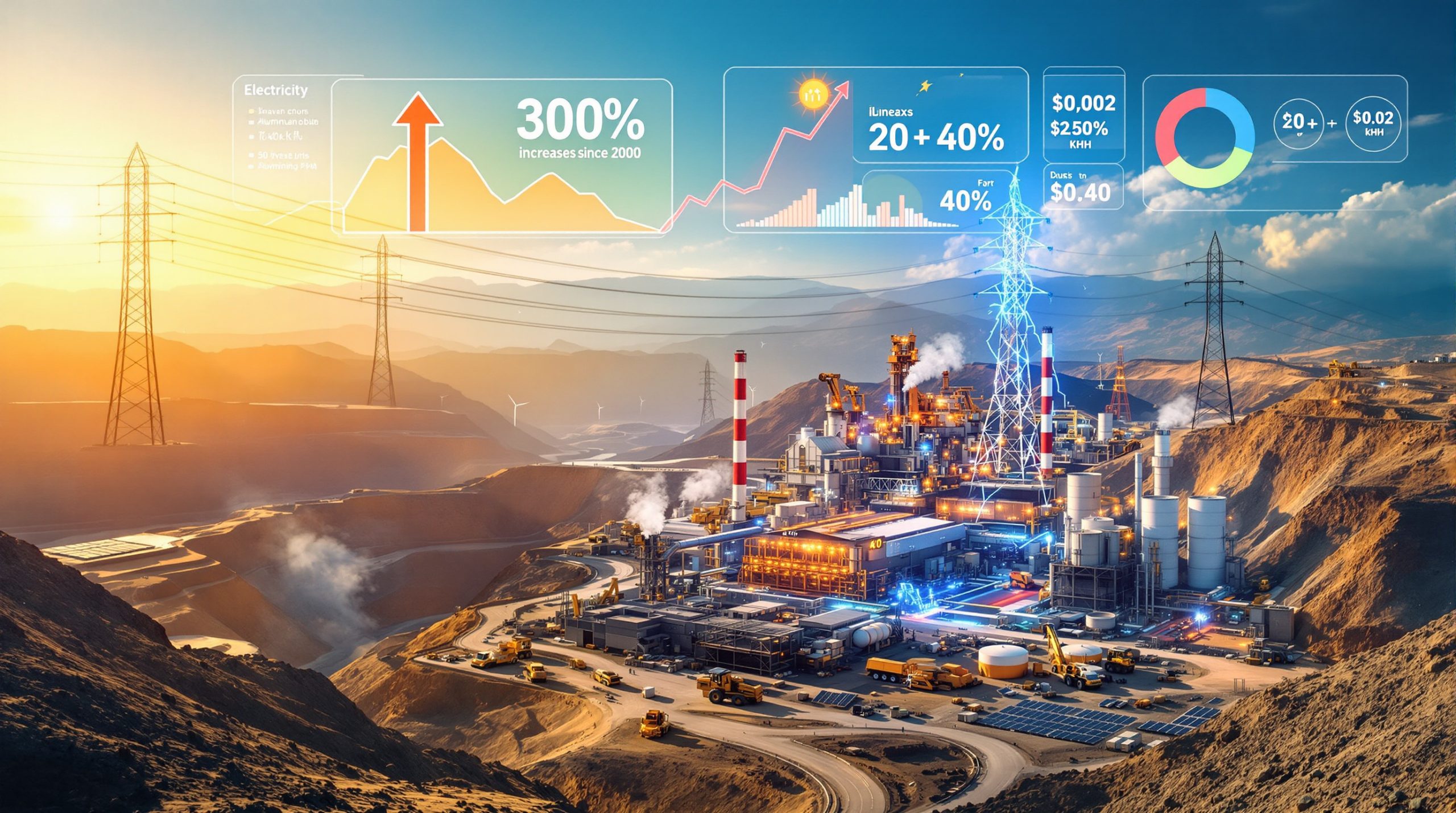South Africa's Rail Renaissance: How Infrastructure Recovery Unlocks Mining Potential
South Africa's mineral export industry has faced unprecedented logistical constraints that have systematically undermined production capabilities across the country's mining operations. The nation's deteriorating rail infrastructure, compounded by decades of underinvestment and persistent security challenges, created a supply chain crisis that forced Africa's largest iron ore producer to operate well below capacity. The Kumba Iron Ore rail performance improvement demonstrates how collaborative restoration initiatives can unlock constrained mining potential.
The challenges extended far beyond simple maintenance backlogs. State-owned logistics provider Transnet struggled with systematic disruptions from cable theft, equipment vandalism, and infrastructure deterioration that required comprehensive security protocols and accelerated maintenance schedules to restore operational reliability. These issues created a cascading effect throughout the mining sector, forcing producers to curtail extraction rates to match diminished logistics capacity.
Historical data reveals the severity of the constraint period. Transnet's freight division managed to move 160 million metric tons in the financial year ended March 2025, representing baseline performance levels that mining operations had to accommodate through reduced production scheduling. The infrastructure crisis demonstrated how logistics bottlenecks can effectively cap mining output regardless of resource availability or market demand.
Collaborative Solutions Drive Measurable Performance Gains
The transformation achieved through strategic partnership between mining companies and state logistics providers demonstrates the potential for coordinated infrastructure restoration initiatives. This collaborative approach addressed decades of maintenance backlogs through synchronized investment and operational planning, moving beyond individual company solutions toward systematic capacity rebuilding.
Furthermore, the mining industry evolution requires innovative partnerships to overcome infrastructure challenges that have historically constrained production capabilities across emerging market jurisdictions.
Quantified Performance Improvements:
• Port deliveries increased to 10.2 million metric tons versus 9.1 million tons in the prior year period
• Quarterly sales volumes expanded by 7% to reach 9.6 million metric tons
• Rail transport efficiency improved by 12% year-over-year
• Annual freight volume targets increased to 180 million metric tons, representing a 12.5% improvement trajectory
The operational metrics transformation reflects systematic capacity restoration rather than temporary performance fluctuations. Management confidence in sustained improvements is evidenced by production guidance expectations trending toward the upper range of 35-37 million metric tons for 2025, suggesting Q3 performance levels can be maintained through year-end.
Enhanced locomotive and rolling stock availability through improved maintenance cycles and strategic equipment deployment increased freight capacity utilisation across the ore export corridor. These improvements enabled mining operations to reduce production curtailments previously required to align extraction rates with constrained logistics capacity.
Infrastructure Restoration Addresses Systematic Vulnerabilities
The rail network rehabilitation programme tackled two distinct but interconnected challenge categories: structural underinvestment in capital renewal and deliberate infrastructure destruction through theft and vandalism. This dual approach required parallel solutions addressing both maintenance backlogs and security vulnerabilities to achieve sustainable performance improvements.
However, similar challenges affect operations globally, as evidenced by onslow haulage operations that demonstrate how operational excellence requires coordinated safety and efficiency protocols.
Security enhancements focused on protecting critical infrastructure components, particularly copper cables and signalling equipment that represented high-value theft targets. The systematic nature of these disruptions required comprehensive security protocols extending beyond traditional perimeter protection to include real-time monitoring and rapid response capabilities.
Equipment Availability Solutions
The restoration initiative prioritised locomotive and rolling stock maintenance cycles to maximise equipment uptime. Strategic equipment deployment across the ore export corridor optimised freight capacity utilisation while reducing downtime from mechanical failures and scheduled maintenance requirements.
Maintenance scheduling coordination between mining operations and Transnet enabled predictive equipment management and route optimisation, reducing delays and maximising available capacity utilisation. This proactive approach replaced reactive emergency repairs with systematic preventive maintenance protocols.
Strategic Inventory Management Optimises Supply Chain Flow
The stockpile management transformation provides concrete evidence of improved supply chain efficiency and operational flexibility. Successful inventory rebalancing between on-mine and port storage facilities demonstrates enhanced logistics reliability and export scheduling capabilities.
| Location | June 2025 | September 2025 | Change |
|---|---|---|---|
| On-mine stockpiles | 6.4 million tons | 5.5 million tons | -14% |
| Port stockpiles | 1.0 million tons | 1.8 million tons | +80% |
This inventory rebalancing represents a fundamental shift from constraint-based storage strategies to market-optimised positioning. Previously, mining operations maintained large on-mine inventories to buffer against uncertain rail availability. The transition to port-focused stockpile positions indicates management confidence in sustained Kumba Iron Ore rail performance improvement.
Strategic Buffer Management Benefits:
• Reduced storage costs through optimised inventory positioning
• Enhanced export readiness during market opportunity windows
• Improved operational flexibility during maintenance periods
• Consistent export volumes despite temporary rail service interruptions
Port stockpile increases provide operational flexibility that enables producers to optimise export timing based on market price movements rather than immediate logistics constraints. This strategic positioning creates competitive advantages in volatile pricing environments where timing flexibility can significantly impact revenue realisation.
Technology Integration Supports Performance Enhancement
Concurrent investments in mineral processing capabilities complement rail improvements through enhanced product quality and operational efficiency. These technological advances support premium iron ore production targeting higher-value export markets whilst optimising extraction rates to match improved logistics capacity.
In addition, data-driven mining operations increasingly rely on advanced analytics and predictive maintenance systems to optimise performance across the entire value chain.
Advanced logistics tracking and predictive maintenance systems enable proactive equipment management and route optimisation throughout the supply chain. Real-time monitoring capabilities provide early warning systems for potential disruptions whilst optimising freight scheduling to maximise available capacity utilisation.
Processing Technology Integration
The quarterly sales increase of 7% suggests operational improvements extend beyond logistics capacity to include enhanced extraction efficiency and product quality optimisation. Technology investments in mineral processing likely contribute to improved throughput rates and product specifications that command premium pricing in export markets.
Technological modernisation across the mining value chain creates synergistic benefits when combined with logistics capacity improvements, enabling operations to capture maximum value from infrastructure investments.
Integration between mining operations and state logistics providers through shared monitoring systems and coordinated scheduling platforms represents a significant advancement in collaborative infrastructure management. These systems enable real-time capacity optimisation and proactive maintenance coordination that maximises system-wide efficiency.
Market Position Strengthening Through Operational Excellence
The rail performance improvements directly enhance competitive positioning within global iron ore markets through improved supply reliability and scheduling flexibility. Reduced production curtailment requirements enable more responsive market participation and enhanced customer contract fulfilment capabilities.
Production Guidance Confidence Indicators:
Management maintains 2025 production forecasts between 35-37 million metric tons, with expectations trending toward the upper range based on sustained rail performance improvements. This guidance revision reflects operational confidence in maintaining Q3 performance levels through the remainder of 2025.
The ability to maintain port stockpiles at elevated levels whilst reducing on-mine inventory creates strategic flexibility for market timing optimisation. This operational advantage enables producers to capture premium pricing opportunities whilst maintaining consistent supply commitments to long-term customers.
Competitive Advantage Factors:
• Enhanced export scheduling flexibility through improved port stockpile management
• Reduced operational costs from optimised inventory positioning
• Improved customer service capabilities through reliable delivery scheduling
• Market timing flexibility for revenue optimisation during price volatility
The transformation demonstrates how logistics capacity improvements translate directly into market competitiveness through operational reliability and cost optimisation. These advantages compound over time as consistent performance enables premium customer relationships and improved contract terms.
Industry-Wide Implications for South African Mining
The successful collaborative restoration model provides a replicable framework for addressing infrastructure constraints affecting multiple bulk commodity producers. Transnet's trajectory toward hauling 180 million metric tons in the current financial year represents systematic capacity improvements benefiting the entire mining sector.
Consequently, South Africa mineral beneficiation strategies can now leverage improved rail infrastructure to enhance value-added processing and export capabilities across the mining industry.
Sector-Wide Performance Context
Transnet's 5% increase in freight volumes, moving 160 million metric tons in the financial year ended March 2025, establishes baseline performance metrics for industry-wide logistics recovery. The 12.5% improvement target for the current year demonstrates scalable capacity restoration across multiple commodity segments.
The partnership-based infrastructure investment approach offers advantages over purely private logistics solutions through shared cost structures and coordinated maintenance scheduling. This model enables smaller mining operations to benefit from infrastructure improvements they could not finance independently.
Global Supply Chain Stabilisation Effects
Improved South African export capacity contributes to global iron ore supply stability during periods of market volatility and demand fluctuations from major steel-producing regions. Enhanced logistics reliability enables more consistent participation in international iron ore markets regardless of temporary demand variations.
The restoration success provides empirical evidence that collaborative infrastructure partnerships can overcome systematic logistics constraints in emerging market mining jurisdictions. This approach may influence infrastructure investment strategies in other resource-dependent economies facing similar challenges.
Sustainability Factors and Performance Maintenance
Long-term success requires continued investment in rail network modernisation and security measures to prevent performance regression. The collaborative model must evolve to address ongoing maintenance requirements and capacity expansion needs as mining operations scale production to match improved logistics availability.
Infrastructure Resilience Requirements
Maintaining performance improvements whilst potentially scaling operations requires ongoing capacity expansion and system optimisation initiatives. Security infrastructure must adapt to evolving theft patterns and vandalism techniques to protect restored capacity investments.
Operational scalability considerations include equipment replacement cycles, staff training requirements, and technology system upgrades necessary to support increased freight volumes. These ongoing investments represent the foundation for sustained performance maintenance beyond initial restoration achievements.
Investment Return Validation
The measurable throughput improvements demonstrate positive returns on collaborative infrastructure investments through increased revenue generation and reduced operational costs. Inventory optimisation provides additional margin benefits through reduced carrying costs and improved capital efficiency.
Financial metrics reflecting operational success include higher sales volumes translating to improved revenue generation, with reduced inventory carrying costs providing additional margin benefits. These quantifiable returns validate the collaborative investment approach and support continued infrastructure modernisation initiatives.
Strategic Planning Framework for Mining Operations
The successful turnaround provides a blueprint for addressing infrastructure constraints through partnership-based solutions rather than relying solely on individual company investments. This collaborative approach enables resource sharing, risk distribution, and coordinated maintenance scheduling that maximises system-wide efficiency.
Industry Best Practices Development
The approach to Kumba Iron Ore rail performance improvement offers valuable insights for other mining operations facing similar logistical challenges in emerging markets. Key principles include collaborative planning, shared investment structures, and coordinated operational protocols that maximise infrastructure utilisation.
Strategic implications extend beyond immediate operational improvements to include long-term capacity planning, market positioning strategies, and competitive advantage development through reliable logistics partnerships. For instance, modern mine planning processes increasingly incorporate logistics reliability as a critical factor in project economics and operational design.
Performance Transformation Results and Market Impact
The rail performance improvements represent more than operational efficiency gains, demonstrating the potential for collaborative infrastructure solutions to unlock constrained mining capacity and enhance export competitiveness in global markets. The 12% increase in rail transport efficiency, combined with 7% quarterly sales volume growth, validates the collaborative restoration approach.
Key Performance Indicators:
• 12% improvement in mineral rail transport efficiency
• 7% quarterly sales volume growth to 9.6 million metric tons
• Optimised inventory management across the complete supply chain
• Sustained production guidance maintenance despite historical constraints
The transformation provides empirical evidence that systematic infrastructure challenges can be addressed through coordinated investment and operational collaboration between mining companies and state logistics providers. This success model offers potential replication opportunities across other constrained mining jurisdictions.
Disclaimer: This analysis is based on publicly available information and industry reports. Investment decisions should be made based on comprehensive due diligence and professional financial advice. Performance projections and market assessments involve inherent uncertainties and should not be considered guaranteed outcomes.
Ready to Capitalise on Africa's Mining Infrastructure Recovery?
Discovery Alert's proprietary Discovery IQ model identifies emerging opportunities in mining infrastructure and logistics sectors, delivering instant notifications when significant mineral discoveries are announced on the ASX. Begin your 30-day free trial today and position yourself ahead of market movements in the rapidly evolving mining sector.




